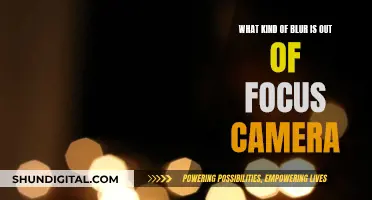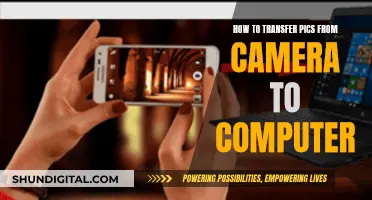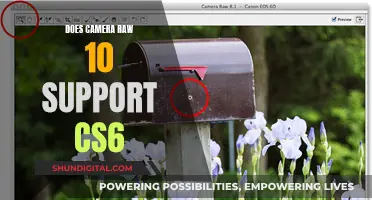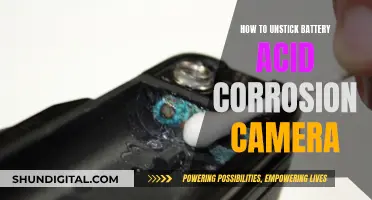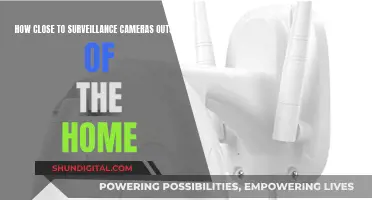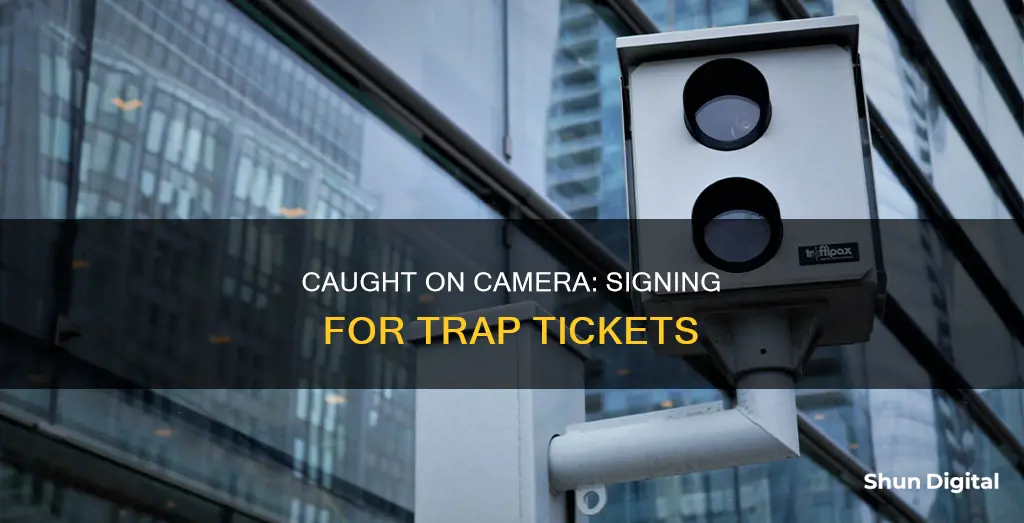
Camera tickets are issued when a camera catches a traffic violation, such as speeding or running a red light. In some places, these tickets can be ignored without penalty, but in others, they must be paid or disputed. The process for doing so varies by jurisdiction, but generally, it involves examining the ticket, gathering evidence, and potentially pleading not guilty and going to court. In some cases, it may be possible to reduce the fine by providing a valid reason for the violation. It's important to note that camera tickets are typically treated like parking tickets and do not go on your driving record, but failure to pay can result in a hold on your vehicle registration.
| Characteristics | Values |
|---|---|
| Do you have to sign for camera trap tickets? | No, camera trap tickets are treated like parking tickets and are sent to the owner of the car, not the driver. |
| Are camera trap tickets legal? | Yes, they are legal in Washington State, for example. |
| Do camera trap tickets impact your driving record or insurance rates? | No, but you will still need to pay the fine. |
| What happens if you don't pay a camera trap ticket? | Your vehicle's registration or tabs may be affected if there are outstanding parking violations or other civil penalties owed. |
| Can you fight a camera trap ticket? | Yes, you can request a contested hearing and check the video affiliated with your infraction. |
| Can you reduce the fine of a camera trap ticket? | Yes, you can request a mitigation hearing and explain your reasons for committing the traffic infraction. However, the judge will not dismiss the infraction. |
| What if you weren't driving the vehicle when the camera trap ticket was issued? | You can file a Declaration of Non-Responsibility, stating under oath that the vehicle was not in your care, custody, or control at the time of the violation. |
| How do you file a Declaration of Non-Responsibility? | You can usually find the declaration on the ticket itself or the court's website. |
| Should you hire a lawyer to fight a camera trap ticket? | In most cases, no, since it won't go on your driving record. |
What You'll Learn

Camera tickets are treated like parking tickets
While camera tickets are generally treated as parking tickets, there are some key differences in how they are enforced and disputed. For example, in Washington, the registered owner of the vehicle is presumed to be the driver at the time of the infraction, and they can be held liable for the ticket even if they were not driving. To dispute a camera ticket, the registered owner can provide a written statement or testify under oath that another person was responsible for the vehicle at the time. Alternatively, they can request a contested hearing to challenge the ticket or a mitigation hearing to provide a valid reason for committing the infraction and potentially reduce the fine.
It is important to note that the laws and regulations regarding camera tickets may vary by state and local ordinances. While camera tickets are treated like parking tickets in Washington, other states may have different procedures and consequences for these types of infractions. Therefore, it is essential to review the specific laws and regulations in your state or locality to understand how camera tickets are handled.
Quick Guide: Reinstalling Camera Batteries
You may want to see also

They don't go on your driving record
While camera trap tickets are still legal violations, they are considered administrative violations and not moving violations. This means that they will not be added to your driving record or affect your driver's license and insurance rates, provided that you pay them. These tickets are typically issued by mail after a camera system snaps photos, records video, and measures the speed of a vehicle with radar. While they may double in price if not paid promptly, they will not directly impact your driving record.
It is important to note that while these camera trap tickets are not moving violations, failure to pay them can still result in significant consequences. For instance, the City of Chicago, which first installed these camera systems in 2003, can seize your vehicle by booting or towing it if you have unpaid tickets. Additionally, the Illinois Secretary of State can suspend your driver's license for non-payment, which would then make driving a criminal offense.
The impact of camera trap tickets on your driving record is primarily related to payment status. As long as you pay the tickets, they will not be reflected on your driving record. However, failure to pay can lead to license suspension and legal repercussions, which could indirectly affect your driving privileges and record. It is always advisable to stay informed about the specific rules and regulations in your area regarding camera trap tickets, as they may vary across different jurisdictions.
In summary, camera trap tickets are administrative violations that are not currently added to your driving record. While they do not carry the same weight as moving violations, ignoring or neglecting to pay these tickets can result in financial penalties and, in some cases, vehicle impoundment or license suspension. Therefore, it is in your best interest to address these tickets promptly and stay aware of any updates or changes in the laws and regulations surrounding them.
Wireless Cameras: Charging Methods and Innovations
You may want to see also

You can fight a camera ticket
In most cases, you can fight a camera ticket without needing to hire an attorney. Here are some steps you can take to fight a camera ticket:
Examine Your Ticket
Check the date, time, and location of the ticket. Because camera tickets are sent to the owner of the car, make sure that you were the one driving the car when the ticket was issued. In some states, the driver is liable for the violation, while in others, the owner of the car is liable. Understand the specific laws in your state.
Plead Not Guilty
You must plead not guilty if you want to dispute the ticket. You can usually do this by mail or online. Check your citation and make sure to plead not guilty before the deadline, which is typically around 30 days.
Request a Formal Hearing
When you plead not guilty, demand a full formal hearing or trial. This may require you to attend other hearings, such as a pre-trial hearing or mediation.
Research Applicable Law
Look for cases in your city or county about traffic cameras and see if any appellate court decisions have ruled on the legality of traffic camera tickets. For example, some states have specific rules about where warning signs must be posted for cameras.
Appear at Your Hearing
Arrive at the courthouse on the day of your hearing with copies of any documents you intend to use as evidence. Treat the judge and courthouse staff with respect, and listen quietly while the prosecutor presents their case.
Dispute the Evidence
You can dispute the authenticity or admissibility of any photographs or videos as evidence. For example, you can argue that the photo is too blurry to clearly identify your car or license plate. You can also argue that the photo is hearsay and thus inadmissible, or that there is no witness to testify about the camera's reliability.
Raise Other Defenses
If your arguments against the camera evidence are unsuccessful and the photos or videos are admitted as evidence, you can still raise other possible defenses. For instance, you may have been making a legal right turn on red when the camera took the photo, or you may have been speeding out of necessity to get to the hospital.
Unlocking Super Macro Mode: Capturing Tiny Details with Your Camera
You may want to see also

You can declare non-responsibility if you weren't driving
If you receive a camera ticket for a traffic violation, it is generally presumed that the registered owner of the vehicle was responsible. However, if you were not driving, you can declare non-responsibility by mailing in a sworn statement to that effect. This is known as a "declaration of non-responsibility".
In the case of camera tickets, the registered owner of the vehicle is presumed to be the driver. However, this presumption can be overcome if the owner states, under oath, that the vehicle was in the care or control of another person at the time of the incident. This statement can be made in writing or in testimony before the court. It is important to note that you are not legally required to disclose the name of the actual driver and can simply state "unknown" if asked.
The process for filing a declaration of non-responsibility may vary depending on the city in which the ticket was issued. In some cases, the declaration form may be included with the ticket or available on the court's website. You can also download a declaration form online and send it to the relevant city municipal court. It is recommended to include the "declaration of non-responsibility" form that was sent to you, leaving the driver's information blank or writing "unknown".
It is worth noting that camera tickets are generally treated like parking tickets and do not go on your driving record or impact your insurance rates. However, failure to pay the fine may result in a hold on your vehicle registration.
Switching Up S7 Camera Modes: A Guide
You may want to see also

You can request a mitigation hearing
If you have received a camera ticket for a traffic violation, you can request a mitigation hearing. This is where you agree that an infraction was committed but explain the circumstances in the hope that the judge will reduce the fine. It's important to note that even if your reason seems valid, the judge will not dismiss the ticket at a mitigation hearing.
For example, if you were speeding, you can admit to it but explain why. The judge has the discretion to reduce the fine on most traffic infractions, but not all. For instance, in Washington State, the judge is prohibited from reducing the fine for speeding in a school zone or passing a stopped school bus.
If you want to challenge the ticket entirely, you should request a contested hearing instead.
NYC Congestion Charge Cameras: Where Are They?
You may want to see also
Frequently asked questions
No, camera trap tickets are typically sent via mail and treated like parking tickets.
No, they are treated like parking tickets and will not go on your driving record or impact your insurance rates.
You will not be able to renew your vehicle's registration or tabs if there are any outstanding parking violations or other civil penalties owed.
Yes, you can request a contested hearing by checking the box on the ticket and mailing it back to the court.
You can file a Declaration of Non-Responsibility, which is a sworn statement that the vehicle was not in your care, custody, or control at the time of the violation.



